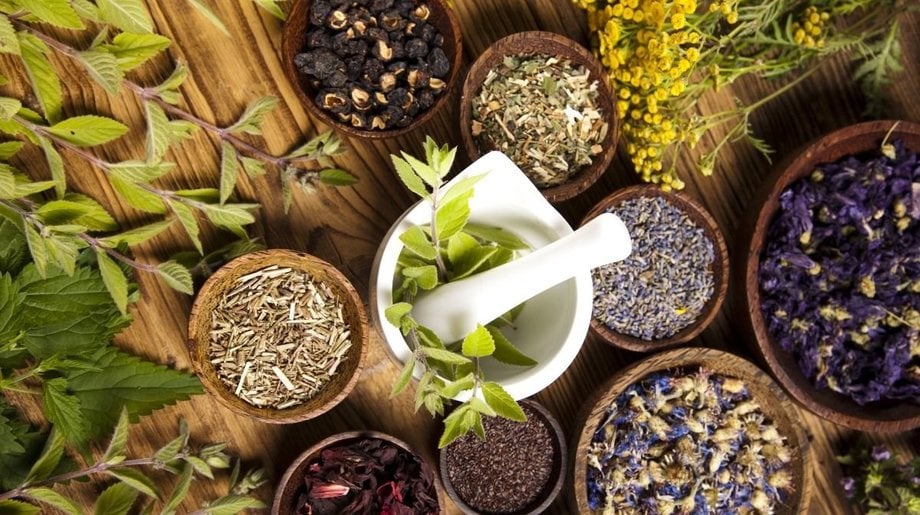Can Herbal Remedies and Aromatherapy Aid Sleep

This article explores the potential of herbal remedies and aromatherapy in promoting sleep. It examines the scientific basis behind these practices and investigates the benefits they offer for individuals with sleep disorders or insomnia.
Additionally, the role of essential oils in facilitating sleep is examined, along with methods for incorporating herbal remedies and aromatherapy into a sleep routine.
Potential side effects and precautions are also discussed. By adopting an academic style of writing, this introduction maintains objectivity and removes personal pronouns.
Key Takeaways
- Herbal sleep aids, such as valerian root, chamomile, and lavender, have calming and sleep-inducing properties.
- Aromatherapy with essential oils, including lavender, chamomile, bergamot, and sandalwood, can promote relaxation and reduce stress.
- Limited scientific evidence supports the effectiveness of herbal remedies and essential oils for sleep, but anecdotal reports and small-scale studies show promising results.
- It is important to consult with a healthcare professional before using herbal remedies and aromatherapy, especially if you have underlying health conditions or are taking prescription medications.
The Science Behind Herbal Remedies for Sleep
The efficacy of herbal remedies for improving sleep has been a subject of scientific investigation. Sleep research has been exploring the potential benefits of herbal remedies in promoting better sleep.
Herbal sleep aids such as valerian root, chamomile, and lavender have gained popularity due to their purported calming and sleep-inducing properties. The science behind these herbal sleep aids lies in their active compounds, which have been found to interact with neurotransmitters and receptors in the brain that regulate sleep.
For example, valerian root contains compounds that enhance the effects of the inhibitory neurotransmitter GABA, promoting relaxation and sleep. Chamomile and lavender contain compounds that exert sedative effects on the central nervous system.
While there is some evidence supporting the use of herbal remedies for sleep, further research is needed to fully understand their mechanisms of action and establish their efficacy and safety.
Exploring the Benefits of Aromatherapy for Better Sleep
This discussion focuses on the benefits of aromatherapy for promoting better sleep.
Specifically, it will explore the use of essential oils for sleep and various aromatherapy techniques for relaxation.
Essential Oils for Sleep
Preliminary research suggests that essential oils may have potential as a complementary therapy for improving sleep quality. Essential oils are concentrated plant extracts that have been used for centuries in traditional medicine practices. These oils are believed to have various benefits, including promoting relaxation, reducing anxiety, and inducing sleep. Some of the commonly used essential oils for sleep include lavender, chamomile, bergamot, and sandalwood. These oils can be used in different ways, such as through inhalation, massage, or adding them to bathwater. While there is limited scientific evidence supporting the effectiveness of essential oils for sleep, anecdotal reports and small-scale studies have shown promising results. Further research is needed to validate these claims and to understand the mechanisms by which essential oils may improve sleep quality.
| Essential Oil | Benefits | Method of Use |
|---|---|---|
| Lavender | Calming and relaxing properties, promotes sleep | Inhalation, massage, bath |
| Chamomile | Reduces anxiety and promotes relaxation | Inhalation, massage, bath |
| Bergamot | Mood-boosting and stress-reducing effects | Inhalation, massage, bath |
| Sandalwood | Calming and grounding properties | Inhalation, massage, bath |
Aromatherapy Techniques for Relaxation
In the realm of relaxation techniques, incorporating essential oils through various methods, such as inhalation, massage, or adding them to bathwater, has shown potential benefits in promoting calmness and reducing stress. Aromatherapy, the practice of using essential oils for therapeutic purposes, has gained popularity due to its potential benefits in relaxation.
Here are three ways in which aromatherapy can be beneficial for relaxation:
- Inhalation: Inhaling essential oils through diffusers or steam inhalation can stimulate the olfactory system and activate brain areas associated with relaxation and stress reduction.
- Massage: Incorporating essential oils into massage oils or creams can enhance the relaxation and stress-relieving effects of the massage therapy.
- Bathing: Adding essential oils to bathwater creates a soothing and aromatic experience, promoting relaxation and calming the mind.
Popular Herbal Remedies for Insomnia and Sleep Disorders
This discussion will focus on the effectiveness of herbs as popular remedies for insomnia and sleep disorders, as well as the safety concerns associated with their use.
The effectiveness of herbs in promoting sleep has been a topic of interest among researchers and healthcare professionals, with several herbs showing promising results in improving sleep quality and duration.
However, it is important to address the safety concerns associated with the use of herbs, including potential interactions with medications, adverse effects, and the lack of standardized dosages and quality control in herbal products.
Effectiveness of Herbs
The effectiveness of herbs in aiding sleep has been a topic of interest in recent research studies. While herbs are commonly used as alternative therapies for sleep, they have certain drawbacks that need to be considered.
- Limited scientific evidence: Despite their popularity, there is a lack of rigorous scientific studies that support the effectiveness of herbs in improving sleep. Many studies have small sample sizes or methodological limitations, making it difficult to draw definitive conclusions.
- Potential side effects: Some herbs can cause adverse effects such as drowsiness, dizziness, or allergic reactions. Additionally, herbs may interact with other medications, leading to potential drug interactions and complications.
- Individual variability: The response to herbs can vary greatly among individuals. What works for one person may not work for another, making it challenging to find the right herb and dosage for each individual.
Considering these drawbacks, it is important to consult with a healthcare professional before using herbs as a sleep aid. Exploring other alternative therapies for sleep, such as cognitive-behavioral therapy or relaxation techniques, may also be beneficial.
Safety Concerns With Herbs
While exploring alternative therapies for sleep, it is important to address safety concerns associated with herbal remedies.
Herbal remedies are natural products derived from plants, and although they are often perceived as safe, they can still pose risks and interact with medications. Concerns include the potential for allergic reactions, adverse effects on liver and kidney function, and interactions with other medications.
It is essential to consult with a healthcare professional before using herbal remedies, especially if you have underlying health conditions or are taking prescription medications.
Additionally, the quality and potency of herbal products can vary, making it difficult to determine their safety and effectiveness.
Further research and regulation are needed to ensure the safety and efficacy of herbal remedies in sleep management.
Understanding the Role of Essential Oils in Promoting Sleep
Understanding the role of essential oils in promoting sleep involves examining their potential impact on sleep quality and duration. Essential oils have been used for centuries as herbal remedies to improve various aspects of health and well-being, including sleep. The usage of essential oils for sleep has gained popularity due to their natural properties and potential benefits.
Here are three ways in which essential oils may promote better sleep:
- Relaxation: Certain essential oils, such as lavender and chamomile, have calming properties that can induce a state of relaxation, facilitating sleep onset.
- Stress reduction: Essential oils like bergamot and ylang-ylang have been suggested to reduce stress levels, which can contribute to a more restful sleep.
- Improved sleep quality: Some essential oils, including valerian and jasmine, may assist in improving sleep quality by promoting deeper and more restorative sleep.
Overall, the usage of essential oils for sleep offers a potential natural solution to enhance sleep quality and duration. Further research is needed to fully understand their mechanisms of action and effectiveness.
How to Use Herbal Remedies and Aromatherapy for a Restful Night’s Sleep
To promote a restful night’s sleep, individuals can utilize natural methods that have been suggested to aid in sleep enhancement.
One such method is the use of herbal remedies as an alternative to prescription sleep aids. Herbal remedies, such as valerian root and chamomile, have been used for centuries to promote relaxation and improve sleep quality. These natural alternatives to sleeping pills are believed to work by calming the nervous system and reducing anxiety, allowing the individual to fall asleep more easily.
Additionally, aromatherapy, which involves the use of essential oils, can also be beneficial in promoting sleep. Lavender and bergamot are commonly used oils that have been shown to have sedative effects and promote relaxation.
Incorporating these natural methods into one’s bedtime routine may provide a safe and effective means of achieving a restful night’s sleep without the potential risks and side effects associated with prescription sleep aids.
Potential Side Effects and Precautions of Herbal Remedies and Aromatherapy for Sleep
It is important to consider the potential side effects and precautions associated with the use of natural methods for promoting sleep, such as herbal remedies and aromatherapy. While these methods are generally considered safe, it is essential to be aware of potential risks and drug interactions.
- Allergic reactions: Some individuals may be allergic to certain herbs or essential oils used in herbal remedies and aromatherapy, leading to skin rashes, itching, or respiratory problems.
- Interactions with medications: Herbal remedies and aromatherapy can interact with certain medications, including sedatives, anticoagulants, and antidepressants, potentially altering their effectiveness or causing adverse effects.
- Safety during pregnancy and breastfeeding: Some herbal remedies and essential oils may not be safe for pregnant or breastfeeding women, as they can affect hormone levels or harm the fetus or infant.
To ensure safety, it is advisable to consult with a healthcare professional before using herbal remedies or aromatherapy, especially if you have any underlying health conditions or are taking medications.
Tips for Incorporating Herbal Remedies and Aromatherapy Into Your Sleep Routine
Exploring different herbal remedies and incorporating aromatherapy into one’s sleep routine can offer numerous benefits.
Herbal remedies such as chamomile, valerian root, and lavender have been traditionally used for their sedative properties and are believed to promote relaxation and improve sleep quality. Chamomile, in particular, contains compounds that may have a calming effect on the central nervous system. Valerian root has been shown to increase the release of gamma-aminobutyric acid (GABA), a neurotransmitter that promotes sleep.
Aromatherapy, on the other hand, utilizes essential oils derived from plants, which are believed to have therapeutic effects on the mind and body. Inhaling certain essential oils, such as lavender, has been shown to reduce anxiety and promote relaxation, thus aiding in sleep.
Incorporating these herbal remedies and aromatherapy techniques into one’s sleep routine may offer a natural and holistic approach to improving sleep quality.
Frequently Asked Questions
Are Herbal Remedies and Aromatherapy the Only Natural Options for Improving Sleep?
Alternative methods and natural sleep aids encompass a range of options beyond herbal remedies and aromatherapy. These may include lifestyle changes, relaxation techniques, and cognitive behavioral therapy, all of which have shown potential in improving sleep quality.
Can Herbal Remedies and Aromatherapy Be Used Together for Better Sleep?
The effectiveness of combining herbal remedies and aromatherapy for stress relief and children’s sleep problems remains unclear. Further research is needed to determine if this combination can aid in improving sleep quality.
How Long Does It Typically Take for Herbal Remedies and Aromatherapy to Show Results for Sleep Improvement?
The effectiveness of herbal remedies and aromatherapy for sleep improvement is influenced by several factors that can impact the time it takes to see results. Further research is needed to determine the optimal duration of treatment.
Are There Any Specific Essential Oils or Herbal Remedies That Are More Effective for Certain Sleep Disorders?
The effectiveness of specific essential oils for insomnia and herbal remedies for sleep apnea remains uncertain. Further research is needed to determine which remedies, if any, are more effective for addressing specific sleep disorders.
Is It Safe to Use Herbal Remedies and Aromatherapy for Sleep if I Am Taking Medication for Another Health Condition?
Alternative options for improving sleep while taking medication should be considered cautiously, as there may be potential interactions between herbal remedies/aromatherapy and medication. Consult with a healthcare professional for personalized advice.









